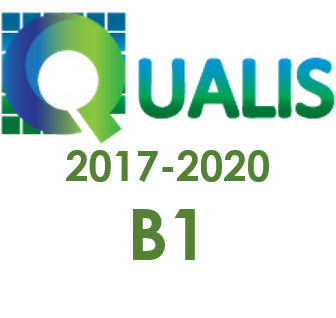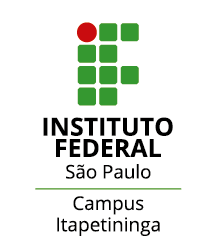Politicity of mathematics
Keywords:
Mathematics. Education. Politicity.Abstract
The text is about a reflection of the learning and politicality of mathematics. It deals with the unequal system, the deformation in educational formation, oppression and other factors. But, mathematicians do not adhere to this policy. The mathematics in its modeling is explained ontologically and epistemologically. Scientific knowledge is also constituted abstractly. The learners' brain process is formed by meanings and signifiers, real and abstract. So the educator does better in the early years because he works from real facts, while the graduate, abstractly. The politicity of mathematics is explained by the example of Galileo Galilei and the pope. This is due to the ‘organic intellectual’: “an expert who knows how to think abstractly, formally and analytically, helping to confront oppression”.
Downloads
References
BARRAT, J. Our final invention: Artificial Intelligenceandtheendofthehuman era. Thomas DunneBooks, N.Y., 2013.
BOSTROM, N. Superintelligence: Paths, dangers, strategies. OUP Oxford, Oxford, 2014.
DEMO, P. Complexidade e Aprendizagem – A dinâmica não linear do conhecimento. Atlas, São Paulo, 2002.
DEMO, P. Pobreza Política – A pobreza mais intensa da pobreza brasileira. Autores Associados, Campinas, 2007.
DEMO, P. Forças e fraquezas do positivismo, 2011. Http://pedrodemo.blogspot.com.br/2011/04/forcas-e-fraquezas-do-positivismo.html
FLYNN, J.R. Are wegettingsmarter? Rising IQ inthe 21stcentury. Cambridge U. Press, Cambridge, 2012.
FOUCAULT, M. A Arqueologia do Saber. Vozes, Petrópolis, 1971.
FOUCAULT, M. A ordem do discurso. Loyola, São Paulo, 2000.
FREIRE, P. Pedagogia da Autonomia – Saberes necessários à prática educativa. Paz e Terra, Rio de Janeiro, 1997.
FRIGOTTO, G. A produtividade da escola improdutiva. Cortez, São Paulo, 1989.
GLEICK, J. The Information: A history, a theory, a flood. Pantheon, N.Y., 2011.
GOLDSTEIN, R. Incompleteness: Theproofandparadoxof Kurt Gödel. Norton &Company, N.Y., 2006.
GRUSIN, R. (Ed.). The non human turn. U. of Minnesota Press, Minneapolis, 2015.
HAWKING, S.W. The Theory of Everything: the origin and fate of the universe. Phoenix Books, Beverly Hills, 2006.
HORN, J. & WILBURN, D. The Mismeasure of Education. IAP, Charlotte, 2013.
HUBBARD, D.W. How to Measure Anything: Finding the Value of Intangibles in Business. Wiley, N.Y., 2010.
LATOUR, B. Reassembling the Social – Na introduction to actor-network theory. Oxford University Press, Oxford, 2005.
LATOUR, B. N. Inquiry into Modes of Existence – Na anthropology of the moderns. Harvard University Press, Cambridge, 2013.
LAURILLARD, D. Rethinking University Teaching. Taylor & Francis, Abingdon, 2007.
MATURANA, H. Cognição, Ciência e Vida Cotidiana. Organização de C. Magro e V. Paredes. Ed. Humanitas/UFMG, Belo Horizonte, 2001.
MEZIROW, J. & ASSOCIATES. Learning as Transformation – Critical perspectives on a theoryinprogress. Jossey-Bass, San Francisco, 2000.
MEZIROW, J. Fostering Critical Reflection in Adult Hood: A guide to transformative and emancipatory learning. Jossey-Bass, New York, 1990.
O’CONNOR, A. Poverty Knowledge – Social Science, Social Policy, and the Poor in Twentieth-Century U.S. History. Princeton University Press, Princeton, 2001.
PINKER, S. The Better Angels of Our Nature: why violence has declined. VikingAdult, N.Y., 2011.
POPKEWITZ, T.S. Lutando em Defesa da Alma – A política do ensino e a construção do professor. ARTMED, Porto Alegre, 2001.
POPPER, K.R. The Logic of Scientific Discovery. Hutchinson of London, London, 1959.
PRIGOGINE, I. & STENGERS, I. A Nova Aliança. Ed. UnB, Brasília, 1997.
PRIGOGINE, I. O Fim das Certezas – Tempo, caos e as leis da natureza. Ed. UNESP, São Paulo, 1996.
SANTOS, B.S. Conhecimento Prudente para uma Vida Decente – “Um discurso sobre as Ciências” revisitado. Cortez, São Paulo, 2004.
SANTOS, B.S. (Org.). As Vozes do Mundo. Civilização Brasileira, Rio de Janeiro. 2009.
SANTOS, B.S. & MENESES, M.P. (Orgs.). Epistemologia do Sul. Almeida, Portugal. 2009.
TAYLOR, E.W., CRANTON, P. &Associates. The Handbook of Transformative Learning – Theory, research, andpractice. Jossey-Bass, San Francisco, 2012.
THOMAS, A. Hidden in plainsight: The simple link betweenrelativityand quantum mechanics. Amazon, N.Y., 2012.
THOMAS, A. Hidden in plainsight 2: The equationoftheuniverse. Amazon, N.Y., 2013.
THOMAS, A. Hidden in plainsight 3: The secretof time. Amazon, N.Y., 2014.
THOMAS, A. Hidden in plainsight 4: The uncertainuniverse. Amazon. N.Y., 2015.
THOMAS, A. Hidden in plainsight 5: Atom. Amazon. N.Y., 2015a.
WAAL, Frans de. Chimpanzee Politics – Power and sex among apes. The John Hopkins University Press. Baltimore, 2000.
WOLFRAM, W. A New Kind of Science. Wolfram Media, Champaign, IL., 2002.
Downloads
Published
How to Cite
Issue
Section
License
Copyright (c) 2020 Revista Internacional de Pesquisa em Didática das Ciências e Matemática

This work is licensed under a Creative Commons Attribution-NonCommercial-NoDerivatives 4.0 International License.




